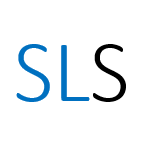Introduction to Health Science databases
Introduction
Searching subject databases is a key part of the academic writing process. In this resource we will identify the key functionalities of various health science database platforms and how you can use their tools to broaden your search terms.
We will look at how you can replicate a database search across four different platforms, this will highlight how some platforms share similarities and others require more user thought to achieve results.
This post will focus on 3 main areas:
What is a platform vs a database?
A platform is the tool you use to search databases. For example, Ovid is the platform that you would use to search the PsycINFO database.
Some platforms allow you to search multiple databases and some databases are available on more than one platform, so it is important in your work that you make reference to the specific databases, as well as the platform you used.
Before you begin searching databases it’s important you are clear what you want to achieve from your search and what you want the databases to do. You need to have some idea of where you’re heading or what you would like to find.
Although it is possible to search multiple databases at once it’s recommended that you search one database at a time. Searching multiple databases can reduce the number of search tools available to you and also reduce the total number of results.
Each database tends to have an area of specialism; you need to be aware of the different target audiences for each database. For example, the PsycINFO database focuses on Psychology related articles.
Some databases allow you to search for similar/related keywords, these features provide a great way of expanding the terminology you use in you searches.
Each platform is different, boasting varying strengths, features and tools that you can use. In this section we will identify the key functionalities and subject specialisms of each platform.
Popular Health Science databases
1. The Ovid platform primarily gives access to articles, journals and databases in the area of health sciences.
2. The EBSCO platform hosts CINAHL and Medline in addition to other subject areas such as Business, Arts and Humanities.
3. Web of science is a cross disciplinary database that sits on the Clarivate platform. Web of Science provides access to a number of different services, such as journal citation reports and Endnote Online. Coverage of Web of Science includes social sciences, arts, humanities, life sciences, biomedicine and physical sciences.
4. Proquest is a multidisciplinary platform which provides access to a range of databases covering dissertation and theses abstracts, newspapers, academic ebooks and scholarly journals. ProQuest’s abstracting and indexing enables users to find sources across Arts, Humanities, Science and Social Science disciplines.
Comparing search functions
When considering which platforms and databases to search, you may want to consider the following functions:
- Does this platform/database support basic and advanced searching?
- Does this platform/database allow you to combine search terms and phrases?
- Does this platform/database produce Mesh search trees?
- Does this platform/database allow you to save your searches?
For more information on which platforms and databases do support these different functions, take a look at the Systematic review subject guide.
Summary
Conducting a search in a logical and structured way will allow you to maximise your searches making them quicker to construct while producing better results.
Remember before you begin your search you should have a clear idea of what you want to achieve, the direction you are heading in and what you would like to find.
Use the more advanced platforms first as their search tools will help you to identify keywords and terms that you can use to broaden your searches in other databases.
Further support
- Systematic review subject guide
- Specialist Library Support — workshops and online tutorials
